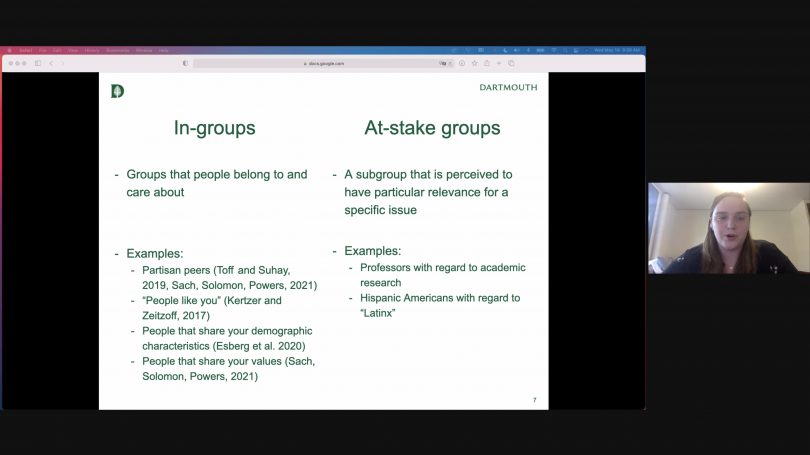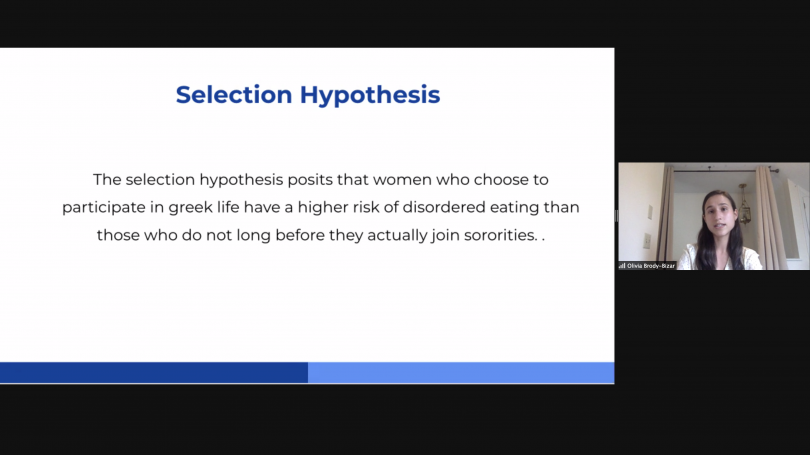The extant literature on Greek Life finds that women in sororities have higher rates of disordered eating than their peers who do not participate in Greek Life, but questions remain. Some researchers have suggested that the relationship between Greek Life results from women with pre-existing risk factors selecting into Greek Life, while other researchers believe that Greek Life causes the increased rates of disordered eating documented within sororities. In this study, I use difference-in-differences analyses to explore the relationship between Greek Life and disordered eating among a cohort of Dartmouth female undergraduates (N=161), some of whom participate in rush and others of whom remain unaffiliated. In particular, I examine pre-existing differences between the two groups, as well as possible changes in causal mechanisms linked to the onset of eating pathology, including social comparison, thin-ideal internalization, peer pressure, and body dissatisfaction, to help adjudicate between the competing theories of selection and causation. Results provided support for the selection hypothesis: that women with higher pre-existing risk to developing disordered eating are selecting into Greek Life. I found no evidence that sorority rush was associated with a subsequent increase in eating disorders or causal mechanisms (social comparison, thin-ideal internalization, peer pressure, or body dissatisfaction).
Full Text



